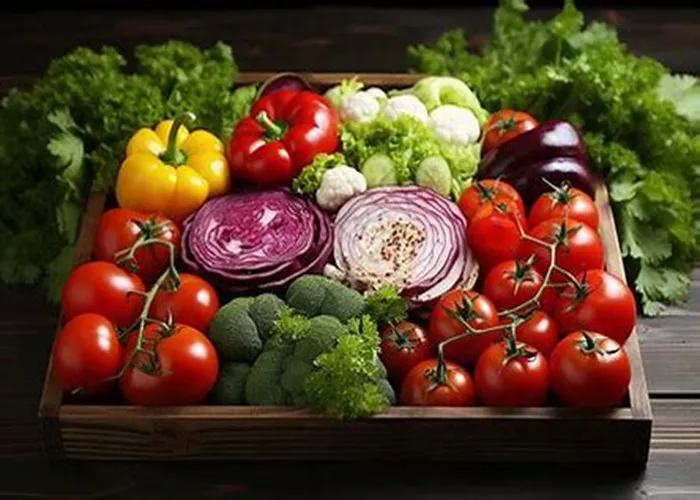In a world dominated by social media health trends, it’s easy to overlook the simple yet proven advice of including more vegetables in your diet. While Instagram and TikTok boast endless tips on the latest weight loss fads, experts agree: a sustainable approach to weight management focuses on the basics, like filling half your plate with non-starchy vegetables such as leafy greens, peppers, tomatoes, and zucchini. It may not be glamorous, but it’s rooted in science and expert advice.
Vegetables are a powerful tool for weight loss. They add volume to meals without adding significant calories, thanks to their high fiber content, which promotes satiety and reduces the likelihood of overeating. Furthermore, they’re packed with essential vitamins, minerals, and antioxidants, all of which contribute to overall health, reducing the risk of chronic conditions like heart disease, cancer, and diabetes.
Despite the pervasiveness of quick-fix diets, which often promise rapid weight loss, research shows that these methods are unsustainable in the long run. A 2020 meta-analysis in BMJ found that while diets can lead to short-term weight loss and improvements in blood pressure, most participants struggle to maintain their weight loss beyond the six-month mark.
As a dietitian, I’ve worked with numerous clients to develop lasting strategies for healthy weight management. And when it comes to vegetables, the best choice is simple: eat the vegetables you enjoy. There’s no need to stress about which vegetable is “best” for weight loss—whether it’s leafy greens, carrots, or even starchy vegetables like potatoes, each offers nutritional benefits. The key to success lies in consistent, manageable changes that you can sustain over time, rather than drastic dietary overhauls. For example, adding an extra serving of vegetables to your meals or swapping calorie-dense foods for produce can significantly contribute to long-term weight loss.
Why Vegetables are Essential for Weight Loss
Research consistently shows that individuals who consume more vegetables tend to maintain a healthier weight. A 2020 review published in Nutrients confirmed that increasing fruit and vegetable intake is closely linked to weight loss in women. Similarly, a 2019 meta-analysis in Advances in Nutrition found that those who incorporated more vegetables into their diet were 22% less likely to experience weight gain over the long term. Studies suggest that consuming three to four servings (approximately 200-300 grams) of vegetables daily significantly lowers the risk of developing obesity.
One of the primary reasons vegetables aid in weight management is their fiber content. Fiber not only adds bulk to meals, helping you feel full longer, but it also moves slowly through the digestive system, triggering the release of hormones like GLP-1 and PYY, which signal fullness to the brain. This helps curb hunger and prevent overeating. Additionally, the slow digestion of fiber leads to a more stable insulin response, which further stabilizes appetite and energy levels.
Enjoy the Vegetables You Love
Ultimately, the best vegetable for weight loss is the one you’re most likely to eat. All vegetables offer nutritional benefits, so there’s no need to overthink the selection. In fact, if you prefer adding a bit of butter, cheese, or dressing to your vegetables, go ahead. Adding small amounts of healthy fats not only enhances flavor but also aids in the absorption of vitamins A, E, and K found in many vegetables.
The key to long-term success is enjoyment. Research shows that when food labels emphasize taste rather than health, people are more likely to reach for vegetables. A 130,000-participant study published in Psychological Science found that flavor-focused labels increased vegetable consumption by 29%. Shifting the mindset from “I need to eat vegetables because they’re good for me” to “I’m eating these because they taste great” may make you more inclined to add them to your meals regularly.
The Takeaway
When it comes to weight loss, the best vegetable is the one you’ll eat regularly. Filling half your plate with a variety of vegetables can help promote satiety, improve overall nutrition, and support sustainable weight loss. Don’t be afraid to make your veggies more enjoyable with a dash of olive oil, a sprinkle of cheese, or a light dressing. By making vegetables a delicious and satisfying part of your diet, you’ll increase your chances of long-term success in achieving your weight-loss and health goals.
Related Topics:
How to Increase Metabolism in Old Age


